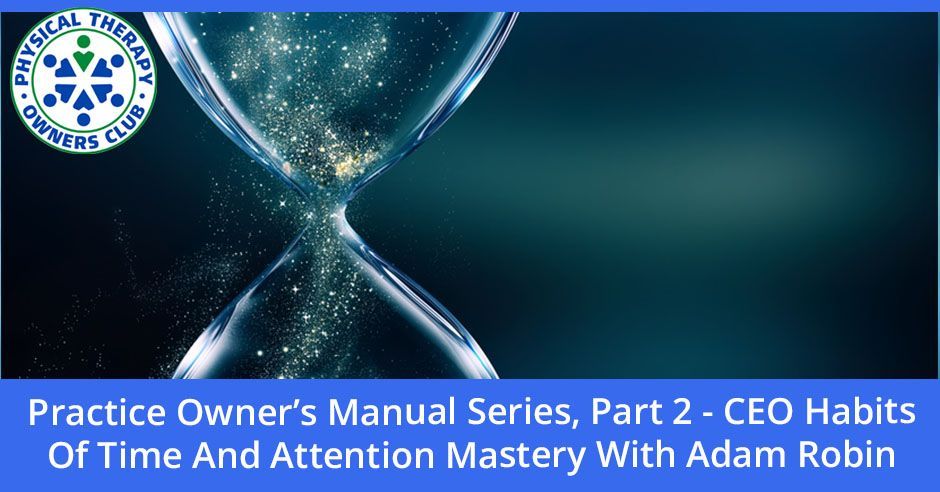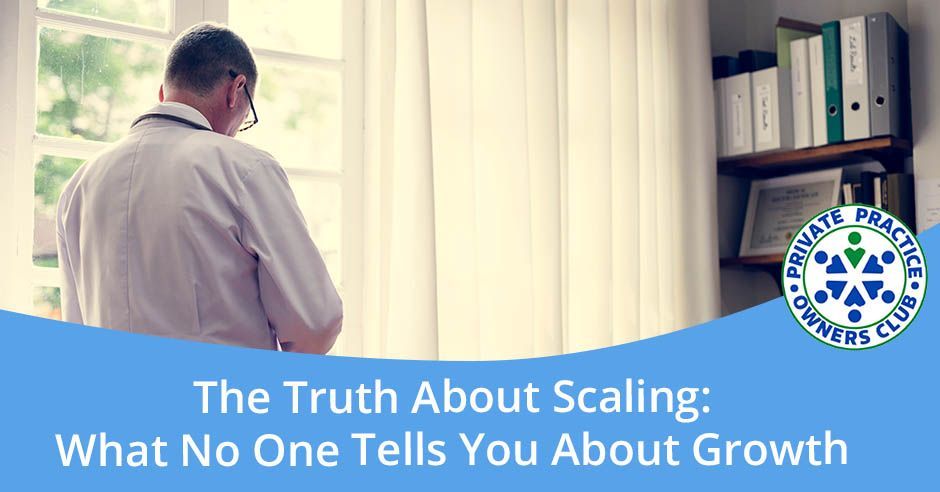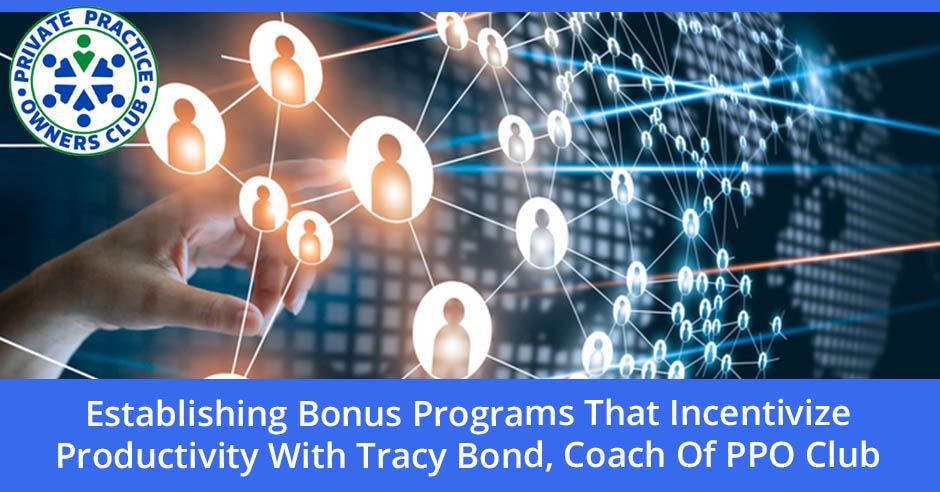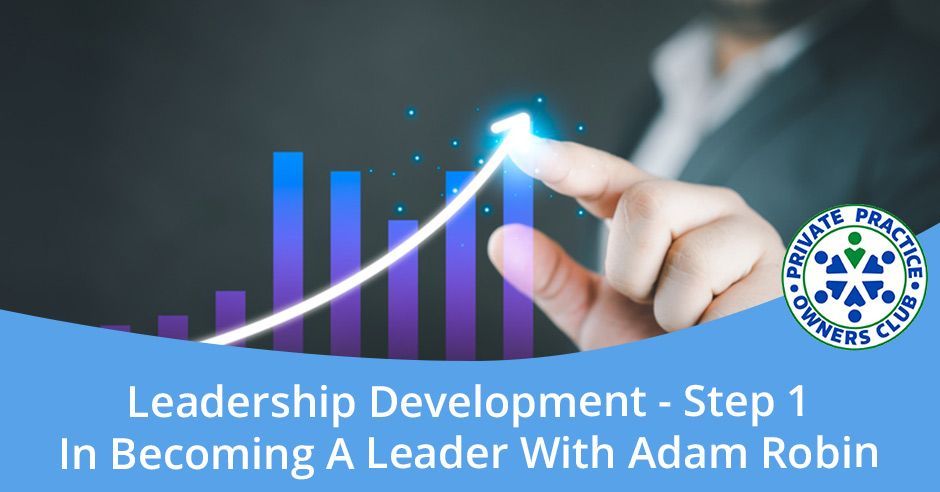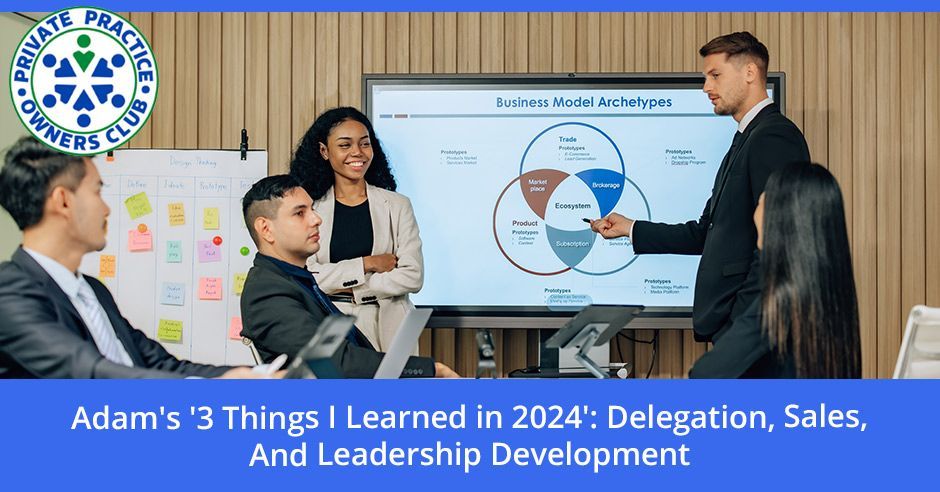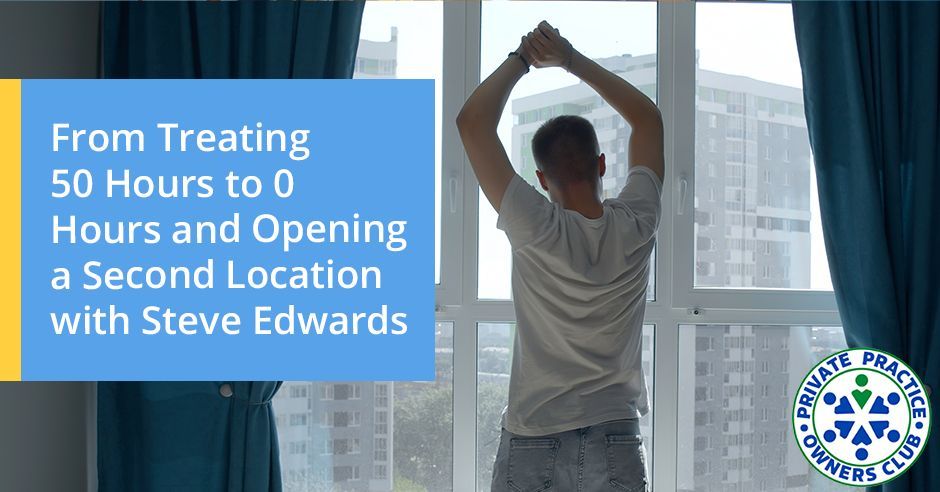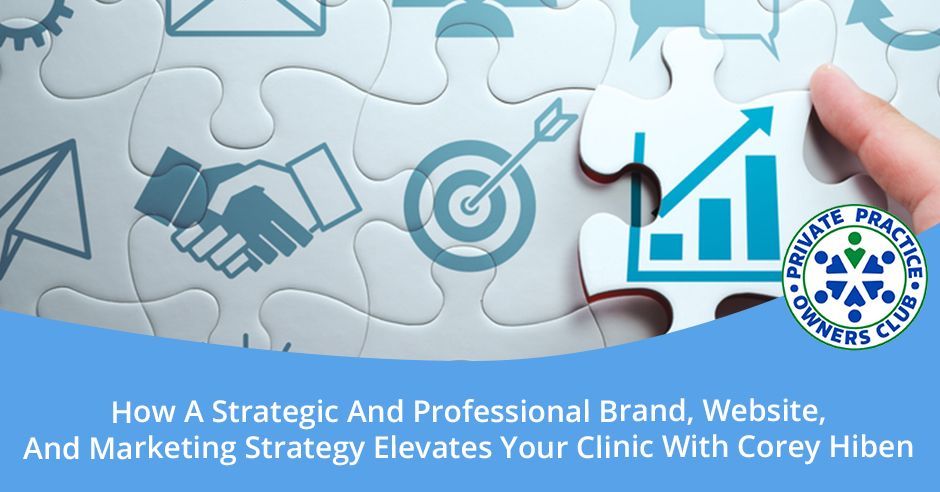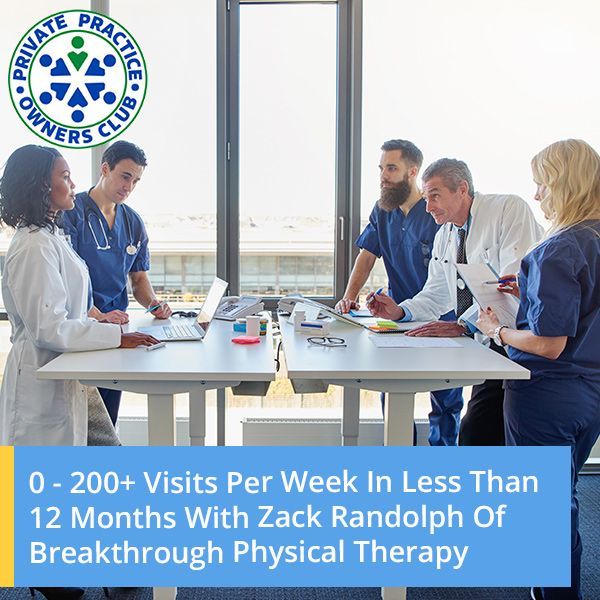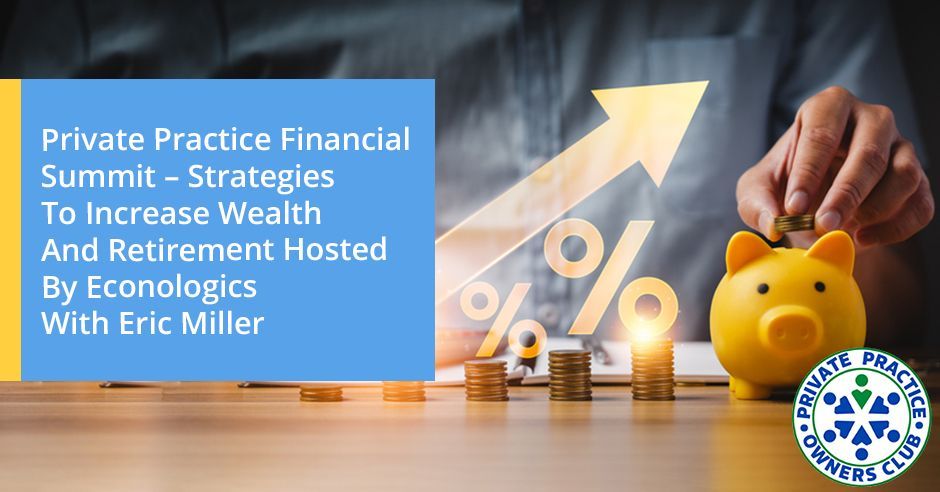In this episode of the Physical Therapy Owners Club podcast, Nathan Shields and special guest Adam Robin discuss essential CEO habits for mastering time and attention. They explore how shifting focus can revolutionize your business, and Adam shares his personal journey and insights on turning energy and motivation into tangible results by harnessing the power of focused habits.
In this episode, you will learn the significance of distinguishing between urgent and important tasks and how residing in the "important but not urgent" space can significantly impact your clinic. Practical strategies for managing attention will also be discussed, including the implementation of weekly, monthly, and quarterly planning sessions to keep your business on track.
Adam has also emphasized the importance of having a system, such as the "Weekly Preview Questionnaire," to consistently assess and prioritize tasks that are in line with your long-term goals. Additionally, real-life examples illustrate how effective planning and focus can result in sustainable growth and reduced stress when managing a clinic.
Ready to take control of your time and attention? Implementing these actionable strategies can help you move from chaos to clarity, making your business more efficient and successful.
Want to talk about how we can help you with your PT business, or have a question you want to ask? Book a call with Nathan - https://calendly.com/ptoclub/discoverycall
Love the show? Subscribe, rate, review, and share! https://ptoclub.com/
---
Listen to the podcast here
Practice Owner’s Manual Series, Part 2 - CEO Habits Of Time And Attention Mastery With Adam Robin
Welcome back to the next episode in our series of the Quintessential Bulletproof Practice Owner’s Manual for Success. Hopefully, you appreciated the previous episode, took lots of notes, and did some homework. Now, get ready to do some more work on your business. Get out pen and paper. Let’s go.
---
I got my good buddy, Adam Robin, back with us on part two of this journey for building out a successful practice, the Practice Owner’s Manual Series. Are you ready?
The bulletproof.
It’s not just successful. It’s bulletproof. I should have added that. Adam, thanks for joining me again. What are we talking about?
CEO Habits: Time and Attention Mastery
We're going to talk about a topic near and dear to my heart called CEO Habits, Time and Attention Mastery.
Why is it near and dear to your heart?
It’s because I had an experience with a guy who's been following me on social media. Apparently, I have a brand now that I'm developing on social media. I was like, “How do you experience me?” He said, “You look like this guy who's working a lot of energy. You got a lot of energy and a lot of motivation.” I was like, “Thank you,” because that's helpful to hear. A lot of that's true, but my weakness is focus.
My weakness is my ability to take all those ideas and put them into a useful product that people can use and see that's tangible. It's not just a bunch of rah-rah speech. Will Humphries was somebody who helped me realize the power of taking the power of the sun and putting it through the magnifying glass. When it becomes through that magnifying glass, you have that point of energy that's so strong that you can start a fire. The way to do that is through the habits that you develop around your life and on your calendar and on your to-do list so that you can not just have a bunch of ideas that are exciting but put them into a framework that gives you results in your business.
It sounds more like it's more than time management because that would have been a default title for an episode like this. It's time management, but it's more than that.
Time and attention management. It's more about attention management.
How to manage your attention. Focus, as you said.
Your attention is the most valuable product that you have in your business, what you're focused on and what you pay attention to. If you look for possibility, you'll find it. If you look for limitation, you won't. How can we set up our environment or our routines in a way that forces us or makes it a lot easier to place our attention on the things that are important and makes it a lot harder to place our attention on McDonald's, Starbucks, YouTube, and Facebook and all the things that aren't quite important because that's a hard thing? If you're using the strategy of, “I'm going to try real hard,” you're going to fail. You have to have a system.
The most valuable product that you have in your business is your attention. What you focus on and what you pay attention to determines your success.
The next default system is a to-do list or laundry list. I'm like, “That'll overwhelm me quickly.” If you're anything like me, you've got ideas in your head and some entrepreneurial squirrel brain, and then everything ends up being of equal importance. Everything has the same priority when you look at a to-do list. It's difficult in that regard if that's one of your defaults as well.
I would say it's impossible. There are people who are smarter than me and who understand the brain a little bit more than I do, but I would say your brain has a hard time comprehending the difference between important and not important because that's a hard thing. That takes a cognitively intense focus side of your brain, which is hard to tap into sometimes. We typically live in the reaction every moment where everything's urgent. It all feels like it's something that we have to get to now.
We live by email replies.
Text message.
Got to reply now.
You get that dose of anxiety. That thing that is driving us to take action, it takes our ability to separate from that so that we can decide what's important and not just urgent.
I've got a couple of ideas, but where do you want to start?
I'd love to let you start. Tell me what you're thinking.
Focus And Prioritization
I'd look at my progression and one thing that was influential in our business is we started sharing this with our leaders and we called it the Covey Quadrant. I know Covey wasn't the starter of it, but he lays it out. Do you know what I'm talking about when I say the Covey Quadrant?
I know what you're talking about.
It's got the four quadrants. I hope I can relay these well, but if you can imagine a piece of paper split into four quadrants. In the top left, you would label urgent and important. On the top right would be important-not urgent. The bottom left would be urgent-not important. Am I doing it right?
Maybe. I'm following you.
The other bottom right is neither urgent nor important. In the bottom right, there's going to be trolling, streaming, and Facebook. Silly stuff. I'd consider that important but not urgent. Anyways, we know what's there. Things that are urgent but not important are going to be things that like, “I need an answer now as to what are we going to do for babysitting?” That's like a Monday morning text from your wife.
To her, it's urgent, but it's not all that important now. Hopefully, I do well with these examples, but the titles of the quadrants explain themselves as you work through it. This is where you would take your to-do list and put the items on your to-do list into these different quadrants. The top left quadrant, urgent and important, are typically things where maybe you procrastinated. It's not a good place to live in urgent and important.
That's, “Hair on fire. This needs to get done by Wednesday and it's Tuesday night or else I lose money, time, energy, the business, and my integrity.” Urgent and important, you might think that's a good place to live, but that's not where you want to live. You want to live in the top right, which is important but not urgent.
You want to live there as much as possible because you know that in time, if I don't eventually get to them, they're going to shift over to the left quadrant and become urgent and important. You want to live in important, not urgent, as much as possible with your action items. Now, that's like a boots-on-the-ground type of perspective of getting the to-do list done. There's a bigger picture related to priorities, strategies, and a plan for the future.
That's where you figure out top priorities for the quarter, for the year, and what are our goals. Those should eventually distill down into some of these to-do items, and we're not talking about that now, but it is an important part of it that we understand what happened. Now we're on the day-to-day. Living in that important/not urgent quadrant is where you start planning out, “My taxes are due April 15th. It's important that I get them done.” It's not urgent because maybe we're sitting in January or February.
Let's say February because you have all your you should have all your forms together and reports by then if you're not doing an extension, but say you're sitting in February. It can sit in that quadrant for at least a month or maybe two before it becomes urgent and important. It needs to get done by April 15th. That's an example.
You want to take those items in the important-not urgent and then apply those to the calendar. I use Google Calendar. I love putting my to-do items that I need to get done on the calendar and scheduling time for them so that I don't have to remember that I need to get it done. I just have to look at my calendar and it tells me where my focus is at any period of time during the day.
I could put it down for 2 weeks from now or 2 days from now. If that doesn't work there, then I can always drag and drop somewhere else on the calendar if other things come up. It tells me where to put my focus. I'm not talking about where to put attention. I'm talking about how to prioritize the things that we're doing on the to-do list.
I love that. My belief is that the more often that we can spend our time in the non-urgent but important category, then we're winning the game. If we can spend 90% of our time there, you're going to win the game of life and business. If you find yourself down the totem pole, if you will, down the quadrant more often, then you're losing the game. You're operating in a system that will not allow you to grow. You can't grow until there are almost zero urgent things on your calendar and you're almost like, “This is easy. I'm crushing it. My team's crushing it. There's zero overwhelm in my life.” Now, you've got your stuff together. You can challenge yourself.
Do you feel like you're at that place now with your PT clinics?
I feel like I am. I'm growing an online company. I have a lot of things that I'm challenging myself.
Only specific to the PT clinics.
A hundred percent.
You can say that. I sense that about you knowing what little I know about you and your leadership team and whatnot. You have three clinics now. You just opened up a third, but you're not running around hair on fire like, “The sky's falling. I don't know what's happening. I got to do this. I got to do that. I’ve got to figure this out. I got to figure that out.” I don't sense that from you at all. You're more in the where's the next game type of attitude.
I had lunch with a guy. He's the regional director for a large corporate company. I drove up there for an hour. I met with him because maybe one day, he'll be my partner. That's how I spend my time, like seeking out relationships, growth opportunities and investments. It's a lot more fun to be there than running around with your hair on fire all the time.
What it leads me to think of is, how do you determine what's important?
I love what you said that everybody has a different framework and there's no right or wrong answer. You should have a system of managing your attention, i.e managing what's important and identifying what's important. You can use the quadrants. You can use to-do lists. You can use paper. You can use something digital, but the most important habit that you can develop is debriefing your to-do list in your calendar and auditing your to-do list on your calendar regularly. By the way, have a piece of paper and write this down. This will change your life. Every week, ideally sometime, like Monday morning. Block off an hour or two, preferably two. The only thing you do during that hour is you're going to plan out your whole week.
I do that Sunday night.
Weekly, Monthly, And Quarterly Planning
There you go. It's going to be called your weekly preview. It's your weekly preview. That's what CEOs do. CEOs don't wake up Monday morning with no plans, and they just go to work. If you're waking up Monday morning without a plan, I'm going to destroy you. You're not going to compete with me. Sunday night or Monday morning, you're going to block off two hours and you're going to pull out your to-do list and you're going to look at it. You're going to have to force yourself to decide what is important.
Twee: CEOs don't wake up Monday morning with no plan. If you're waking up Monday morning without a plan, you’re going to be destroyed.
What are the 1 to 3 things that I need to get done this week that are going to get me one step closer to what I want in my life and in my business? I can only pick one or three. I usually pick three. I call it my big three. Every week, I have a weekly big three. Those are the only three things that I'm focused on. If I get those three things done, I am inning. Blocking off that time every week is huge. Now, it's also important for you to do that on a monthly basis. Maybe every month, you do a four-hour block of time, which is called your monthly debrief or your monthly planning session.
You're zooming out a little bit and it's like, “I need a CEO game plan for the next 30 days. What is going to be my monthly big?” The first thing you're going to do is get in the habit of doing that on a weekly basis. The next thing you're going to do is get in a habit of doing that on a monthly basis, and then you zoom out a little more. It's like, “Now let's do it a quarterly big three,” and then you have quarterly strategic meetings with your team, and then you zoom out a little bit more. Now you're doing an annual big three.
Planning for your attention is huge. I request start off weekly, then go to monthly, quarterly, and then annually. It's a skill. The first time you sit down, you're going to look at this piece of paper and be like, “I want to do them all.” You're going to start forcing yourself to say no to 98% of the stuff and only say yes to the 2% that's important. That practice will get you way closer.
Another influential thing that was a part of our business was there's a whole book written about it by Keller. I forget his first name.
Kelly Williams.
The One Question
The book is the one thing and it's all based on the one question. What is the one thing such that by doing it, everything else becomes easier or unnecessary? That's a great question to use to determine some of your priorities. You can still get down to three things because those three things might be in completely disparate areas of your business, but you want to talk a little bit broader picture. What's the one thing I can do?
This is where, again, doing a strategic planning session or something well ahead of time or earlier at the beginning of the year when you're setting forth goals, strategies, and whatnot. It should line up with your weekly planning session and that is, what's the one thing that I should get done this week? It makes everything else easier or unnecessary.
That's a good priority filter to help you determine what one thing is going to get you the furthest. It's important to be open to the answers that come to your mind because some of those answers are going to be things that you don't want to do or that you think are important but they don't move the needle. They push the rock down further down the path. I'm like, “I've got to pay these bills.” Who doesn’t it?
That's not going to get your business further. That's part of doing business. It's not going to get it further. Whereas, if you're true to yourself, like being clear about things, let's take something simple. What is my time off policy when employees want to take time off? Can I spend an hour, maybe two hours to get clear about what it takes for my employees to ask for time off and for me to approve it and be okay with it? It probably won't even take that long. I'm talking about a bigger thing and that is generating policy and procedure. That regularly comes up.
That's faster. Important but not urgent stuff.
Where you want to live. You and I know you live there, and your world is starting to open up.
You become the puppet master at that point.
Importance Of Policy And Procedure Manuals
As I'm doing these strategic planning sessions inevitably ends up being one of the top 1,2, and 3 priorities for any company given year is to get clear on their policy and procedure manuals because they don't have a clearly defined one. Working on policy could be huge and move your business forward. We talked about this in the last episode, getting clear on my values for the company, generating a vision, generating or creating a purpose. These are high-level things that are important with the capital I and not urgent because you can get by without them. If you live in that space and do those Important things, then you will move your business forward and it's impossible not to.
I have two things that would be valuable for the audience. One is I blocked off two hours on Sunday. Now what? Let's create an SOP for what you do during that time.
When you say SOP, for people who don't know?
Developing A Weekly Preview Questionnaire
Standard operating procedure. A checklist.
A system for your system.
I'm going to give it to you for free. We're going to make this up, but it's going to be called something like the Weekly Preview Questionnaire. The first question is going to be, what was one win that you had last week? What was one challenge that you did that impacted your ability to make progress? What is one thing you can do this week to overcome that challenge, and how will that impact you in your life and your business? Based on what you've learned in your current to-do list, what are the three most important things that you need to get done in the week and why? What is a perceived obstacle that's going to impact your ability to get it done? How will you overcome it?
Do that every single week. For your month, do it for the month. For your quarter, do it for the quarter. For your year, do it for a year. That's your SOP. You're coaching yourself. That takes some brain work to think about that. It's not just A, B, or C or all of the above. You've got to dive in. You should almost be on the verge of sweating when you complete that assignment. Maybe the next question is, you've identified your big three. Now, you place them on your calendar.
When are you going to do them?
Put them on the calendar and do not move them. By the way, turn your phone and emails off. Turn everything off. Now, you've got a game plan for the week. That's your SOP. It's a game-changer. It takes discipline.
This is where it's obvious to me in talking like this where an owner cannot be treating full time and do this honestly. It’s hard to get some owners out of the mindset that ownership is more important than the patient care. I understand if you're starting a practice. That's where you should be. You should be treating patients. Even at the very beginning, I would go back and challenge you and I would have challenged myself to not treat full-time when it was just myself.
I get everything I need to get done in the first 35 or in 35 hours so that we can give myself 4, 5 or 6 hours to work on the business because to honestly own your business and run it properly, you have to have the time to work on these top 1 to 3 things that are going to move the business forward. You have to make the time to do that. You can't hope that maybe you have a cancellation after lunch and that gives you an extra hour. I had one client who would do that. The front desk person would schedule them an extra hour after lunch twice a week.
He had lunch hour plus an hour. It's not going to cover it. You can't honestly address the issues related to your business in that little amount of time. This goes back to the need to have the time to work on your business. Ideally, if you're in a situation where it's tight, start with a half day. Build out to at least two half days full blocks. Not just a few hours, but like 4 or 5 hours. When I say a half day, that's 4 to 5 hours at a chunk. Create that time so you can work exactly on this stuff. Very necessary. You honestly can't expect to achieve any of your goals if you don't have that time to do this.
People, myself included, massively underestimate the amount of time and focus you need to be placing on your business in order to help it grow. Massively. Not just grow but be good. We're not trying to be a broke down. We want to be the best, like be good at what you do. People massively underestimate the amount of time that you need to put into it.
I like Alex Hormozi. If you folks don't know who he is, go check him out. The game is a show that he posted. A smart business mind. He talks about all the time that it takes 1,000 uninterrupted hours to start making a little progress. If you're building out your KPI dashboard or your marketing plan or your recruiting system or anything, it's like, you need 1,000 hours to start making good progress. A progress that is transformational.
Sustainable transformational isn't dependent upon you as a recurring system.
A thousand hours. What you're building is a business that lasts. You shouldn't be trying to just throw duct tape on it all the time. He also references this concept of like if you're going to write a book or build a business, you can spend five years trying to build an amazing and solid business with systems, policies, procedures, training and everything.
You can spend the rest of your life watching it grow and make you money or you can spend 30 days piecing it together then you can be a slave to it for the rest of your life. It's like put the time in and build something that's going to serve you. There's no shortcuts. Put the work in and make it good. Make it sustainable. Build it to where it can serve you. If you're not spending your time in that bucket, then it's going to be hard for you to get to that non-urgent but important bucket.
Put the time in and build something that's going to serve you.
I was listening to one of Tim Ferriss's shows and he was talking with a venture capitalist. He's like, “I can't tell you how many business school graduates come to me asking if he were to invest in their business. He said, “Tell me about it.” What they had is have an amazing name and a logo. They have this idea for an app. They spent all their time on that. Nothing on the business whatsoever. They haven't tried to procure any sales. They haven't marketed it to anybody to see if it would fly.
They haven't done any research. They built all the fancy things around it, expecting that people are going to flock to this. We can translate that to the practice space where you can have all four walls. You can have a lease, a space, and the equipment. You've got all the certifications and all those letters after your name providing in great therapy.
You even got some referrals that are coming in and you're treating full-time. This is it. At that point, you've done a lot of work to get to the point where you own yourself a job and you are the worst slave owner there could be is when you're a slave to yourself. You own the job that you're in and that's when people tend to get stuck. That's when I got stuck. Where I thought, “I don't see the path out of this.” I created what I thought was the ideal scenario in which I have my own business but I'm a slave to it. It runs me. I don't run it.
The unconscious subconscious assumption was that If I work hard at what I do and know to do, which is physical therapy, my goals will be fulfilled and there will be some freedom on the backend. Not knowing that it takes intention and appropriate attention to the things that matter most to make that progress. When I finally started paying attention and the appropriate attention to my business and set aside time to do that. That's when my life changed, honestly. Opportunities expanded. Things happened. Progress started being moved forward. I have plenty of opportunities in front of me now that I understand that concept.
Prioritizing Non-Negotiables And Personal Time
Discipline equals freedom. It's what comes to mind. I want to also give the readers another important nugget. Something that did change my life and it's called identifying your non-negotiables. “Adam, what does that mean?” I'm going to tell you. You have a handful of what I would call non-negotiables that fill your cup, bring you energy, and improve your quality of life. These are going to be things like, my non-negotiables are going to be, I need quiet time daily.
Discipline equals freedom.
I have to have quiet time daily. I have to spend time with my family. I have to exercise, get eight hours of sleep, spend time reading and learning. Maybe that's about it. Those things are the things that I cherish that bring me energy and purpose. If I don't prioritize them, I will crash and burn. Identifying what those things are, maybe it's like, I have to go to church on Wednesdays and Sundays. I have to spend 30 minutes in prayer a day. I have to ride my horses every day. Whatever it is. You can't have 100 of it, but you can have 3 to 5.
It's like, prioritize yourself a little bit. Put those things on your calendar and they don't freaking move. I'm going to have dinner every night with my family. Business is super hard. It's stressful. It's going to demand more than just physical labor from you. It's going to have a mental toll. It could have a demand on your marriage, friendships, children and your relationship. If you don't take care of that, you will lose it. It's going to demand on your health. Get clear on what your non-negotiables are and prioritize them because the best business owners in the world understand what they are and they make sure that they're spending time there. It's important.
I had a whole episode with Mike Bills about this and it was more about control. As physical therapy owners, we are very much at the effect of our schedules. We willingly give up our schedules and our time to our patients. Especially as owners, like if a patient needs to get in, I'm wide open. Put them on my schedule. I'll see him lunchtime after work or early before we open. You name it. Is there a Saturday issue that you can't come in any other time?
Unfortunately, we take on that attitude and leave ourselves open to the whims of everyone else's schedule. When we decide to take control of our calendars and our schedule and say, “You can't see me after 5:00.” I have an owner friend in town. He leaves at 2:00 every day. Everyone in the clinic knows it. He's gone at 2:00. If you want him, you better get to him before 2:00. I respect him for it. I'm like, “I don't know if I had the guts to do that when I was still sitting in the office at the clinic.” That's what he does and guess what? His clinic is super successful.
The guy is very clear on what his non-negotiables are.
Taking control of yourself so you are, what we would say in our clinics was, at cause of your situation. Don't be at effect of others in the environment around you and the demands of others around you. Be at the cause of your situation and the saying, “Be intentional about what you want and set your calendar so that it looks like your intentions are being lived out and make time for him. I love your non-negotiables.
For Mike Bills, it was, “I'm telling my office manager don't schedule me between 12:00 and 2:00 because I'm going to go for a run at lunchtime. I haven't run for years and I want to get back to running. Guess who was his biggest supporter? People came left and right trying to get on his calendar during that 12:00 to 2:00 time. She would say, “No, he doesn't see people between 12:00 and 2:00. Done.” She had to say it a few times and people laid off. People will try to attack you. People will try to get on that schedule and fit in at those times, but the more you can commit to yourself, others will commit to you as well and say, “Protect that time for you.”
That was beautiful. I love it when you said that. That was good. The first person you commit to is yourself. Once you learn how to commit to yourself, then you can learn how to commit to your business.
Other people will be attracted to that.
That's right. That's huge. I've got five minutes then I have to run. I wrote down as you were talking. If you don't mind, I wanted to wrap it up into a bow into a little checklist that people can that people can take. Chapter one of your Practice Owner’s M annual is building the foundation. You're going to have your story. You're going to develop your vision, purpose, and values. You're going to flip the page over.
That was the last episode.
Sorry about that. Now, we're on your time and attention system. This is chapter two and it looks like this. 1) Have a to-do list somewhere. Either on paper or digital. Something. You are no longer capable of holding all that information in your head. You have to have an outsourced brain somewhere where you can put all your ideas and thoughts. Have that somewhere. 2) Schedule time on your calendar every week to review your to-do list and to organize it, identify, sort, label, and to prioritize.
It's going to be called your weekly debrief. During your weekly debrief, you're going to complete the weekly debrief questionnaire every week. Through that questionnaire, you're going to learn and re-prioritize and identify what your weekly big three are. The only rule is those weekly big three have to be non-urgent but important. They cannot be urgent or important things.
From there, you identify them. You place them on your schedule and it does not move. Subcategory, identify your non-negotiables. Place them on your calendar and commit to yourself. If you do that, you will be a freaking rockstar business owner. A rockstar CEO and you're going to spend much more of your time focusing on the things that are most important to you and your business.
I'll tell you what, the control and confidence that comes from that simple exercise is huge. When I knock out my most important things on a daily basis, I'm like, “I'm kicking ass.” Feeling good about myself.
I'm in control. Come on. Let’s go. I got my stuff together. Think about when you go to and you see somebody on stage speaking. You're like, “I'm impressed with this guy. That guy's got some non-negotiables.” This is what he's doing. He's like, “He's got his stuff together.” Be like that.
I love how you wrap that up. Very cool. This is part two of our series about the Bulletproof Practice Owner's Manual, any owner looking to start their practice. It'd be great to see some of the experienced practice owners going back through this and seeing where they can polish up, but awesome part. I love it. We promise we're going to get to productive stuff. This is the baseline and foundation for being super productive in your company.
In the next episode, we're going to talk about money. Let's dive in. We're going to make that paper. Come on.
Thanks. We'll talk to you.
Peace out.



